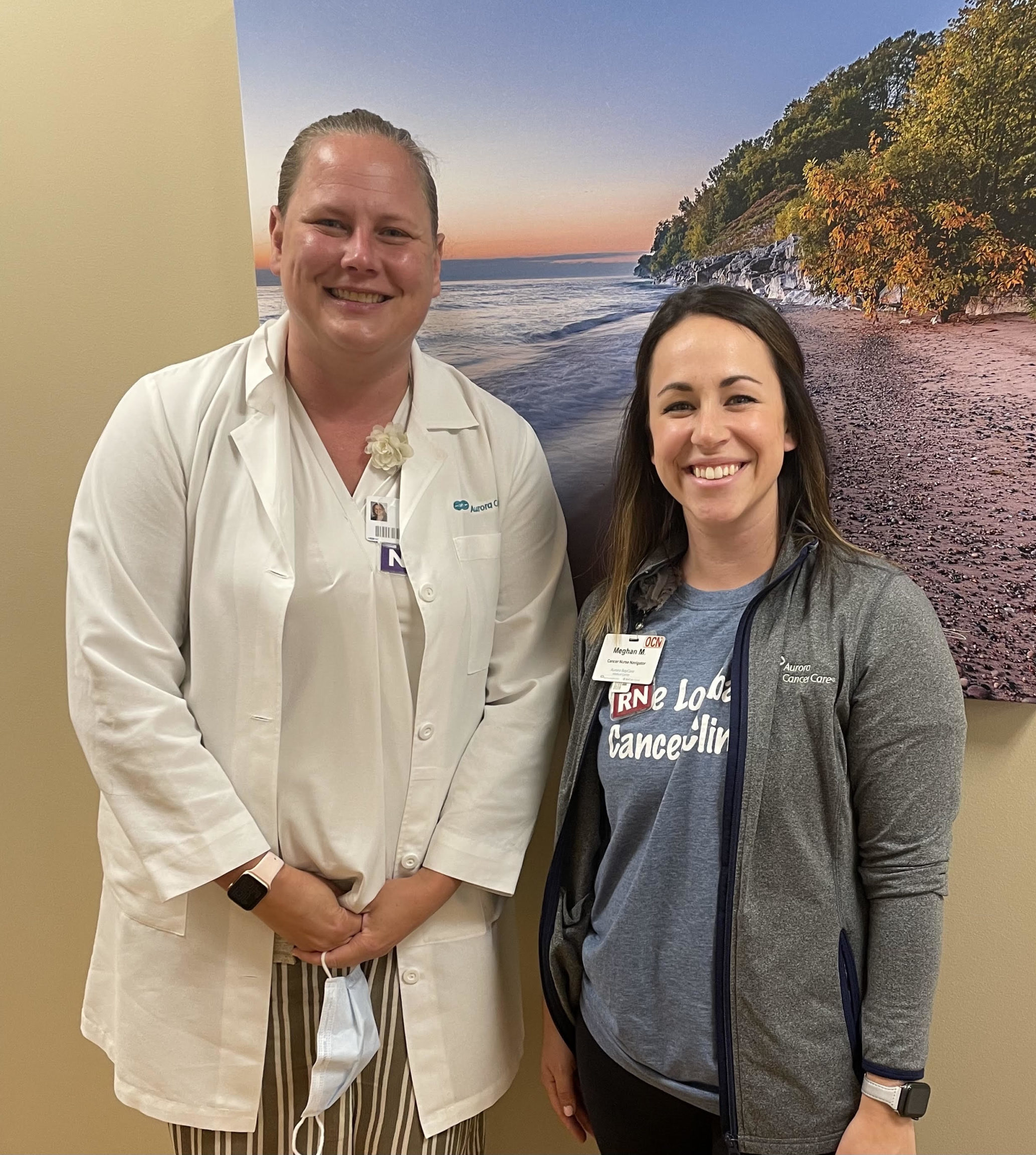There’s this quiet that often happens when a cancer patient completes treatment. You go from having your life overwhelmed by doctors, nurses, technicians, and treatments to having nowhere you need to be. Depending on the facility (and the patient), the health care team might ring a bell or otherwise celebrate your final visit. Then you’re out.

Melissa Paasch, oncology nurse practitioner (left) and Meghan McHugh, nurse navigator (right)
“For a lot of people, when they’re done with treatment they wonder, Now what am I supposed to do?,” said Meghan McHugh, a nurse navigator specializing in lung cancer at Wisconsin-based Aurora BayCare Medical Center and one of the driving forces behind a new program to transition people from treatment to survivorship.
McHugh explained that part of her role is to talk about survivorship up front, at the time of diagnosis. McHugh said she tells patients that in the same way they’re getting input on their treatment, “when you’re all done with this you’re going to come back and do this again. Only this time we’re going to have our survivorship conversation about what you’re going to see moving forward.”
McHugh worked closely with Melissa Paasch, an oncology nurse practitioner, to launch the survivorship program in March. Their initial aim was to see three patients a month. The program was immediately successful so they scaled up to double that number.
Paasch told Monthly Measure that she schedules appointments 3–6 months after treatment. “That’s when emotional issues start popping up,” she explained, “including the fear of recurrence.” Her first step before the meeting is to create a survivorship care plan for each patient that details their medical history, what treatments they received, and a list of support groups and other resources for moving ahead. The meetings themselves involve a core multidisciplinary team comprising Paasch, a social worker, and a dietician. Each discusses the resources available to help the patient along their survivorship journey.
The genesis of the survivorship program.
McHugh said the program evolved from a patient need—and from an understanding that Aurora BayCare had a lot of underutilized resources available to patients.
“There are so many resources available,” says McHugh, “but we needed to be better at getting those resources to patients. Our goal was to pull all of these resources together for patients to use at the right point in their cancer survivorship journey.”
Aurora BayCare Medical Center is a GO2 for Lung Cancer Care Continuum Center of Excellence.

Leave A Comment